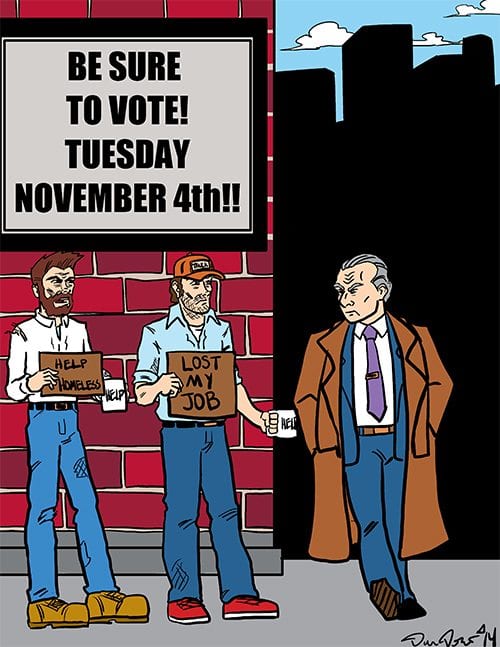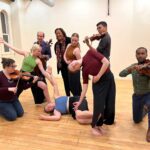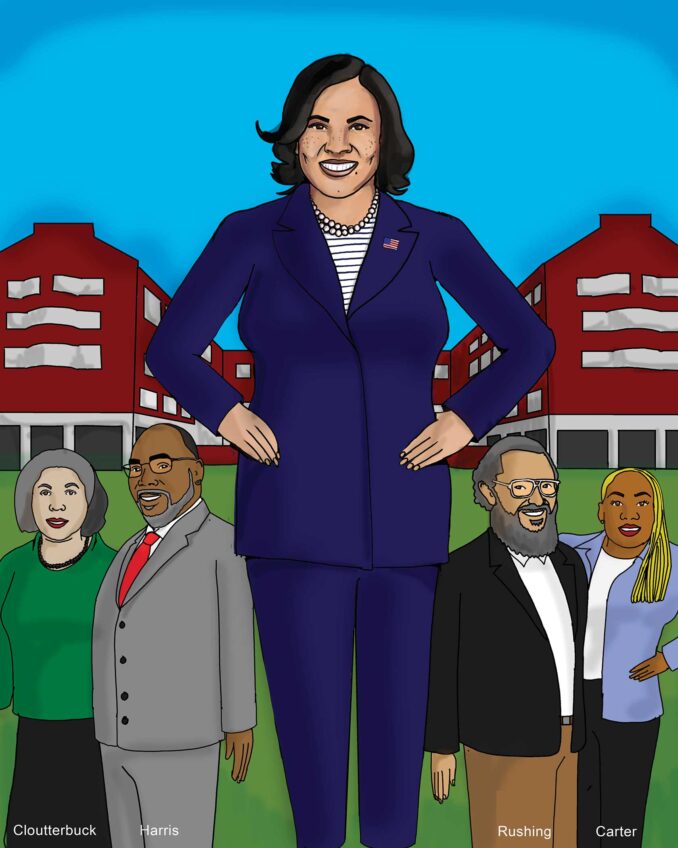
A continuing challenge of the African American is to believe that “I am somebody.” Society seems to be organized to create the opposite impression. Only the strong are able to maintain a sense of self-confidence in an environment that seems to be constantly demeaning. To be registered as a voter also establishes a significant identity.
In the past, those who stood up too assertively were often forcibly put down. To the bigot, nothing was more destructive of the peaceful social order than an obstreperous minority. Misogynists also apply the same perspective to women who have the temerity to speak their minds.
There is one way that everyone can be acceptably assertive. That is to go to the polls on Election Day. The customary way to look at voting is whether there is a candidate you want to elect. That is certainly of interest but it is not the most important point. An unusual equality exists in the voting booth. An impoverished citizen has the same power as a multi-millionaire. Each has only one vote.
Consider that. Whether or not those in power like it, you the voter are indeed somebody. It is unimportant whether there is a candidate on the ballot you care to vote for, the fact that you showed up and pulled the lever is what is empowering. Now the politicians have to be concerned about what you might do in the next election.
When a large number of citizens share the private process of voting, the result can change the nation’s public policy. In 1964, the Republican candidate for U.S. president, Barry Goldwater, campaigned vigorously against the Civil Rights Act. Black voters went to the polls in droves and 94 percent cast their votes for Lyndon Johnson. In this election the powerful black voting bloc first emerged.
Now critics complain that black voters, who usually support liberal issues, are slaves of the Democratic Party. The assertion is that blacks do not vote for their best interests. Critics ignore the fact that African Americans were once primarily Republicans. They were committed members of the party of Abraham Lincoln until they were recruited away by Franklin D. Roosevelt and his first lady, Eleanor.
Another criticism that is mathematically foolish is that blacks voted for Barack Obama because he is black. Then how does one account for the black vote for President Johnson in 1964? Johnson garnered overwhelming support because blacks wanted to see an end to racial discrimination in employment, education and places of public accommodation. For black voters, who have almost always had to choose from among white candidates, the political issues have always trumped race.
However, the presence of a black family in the White House has encouraged black Americans. They now feel more like real citizens of the country. They are more inspired to go to the polls to vote. In the last presidential election in November 2012, more than 66 percent of registered blacks voted. That is 2 percent higher than the number of registered whites who went to the polls. That is the first time that the black turnout was the highest in the nation.
The last day to register for the November election is Wednesday, Oct. 15. Be somebody!!! Register, and then vote on Tuesday, Nov. 4.

![Banner [Virtual] Art Gallery](https://baystatebanner.com/wp-content/uploads/2024/04/NJ-H_1-150x150.jpg)




